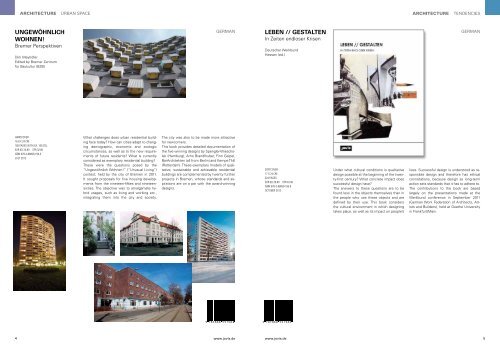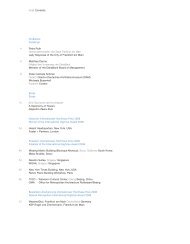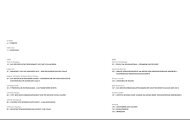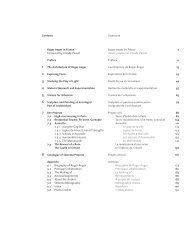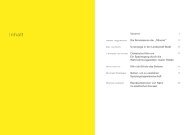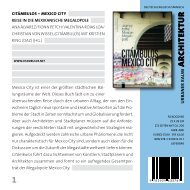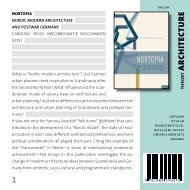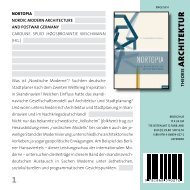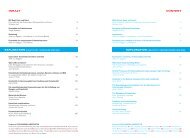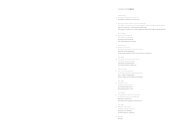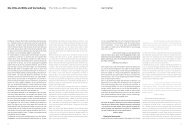Architecture Art
Architecture Art
Architecture Art
Create successful ePaper yourself
Turn your PDF publications into a flip-book with our unique Google optimized e-Paper software.
<strong>Architecture</strong> urban space<br />
UnGEWÖHnLIcH<br />
WoHnEn!<br />
Bremer Perspektiven<br />
Dirk Meyhöfer<br />
Edited by Bremer Zentrum<br />
für Baukultur (BZB)<br />
Hardcover<br />
16.8 x 24 cm<br />
160 pages witH ca. 100 col.<br />
eUr (d) 24.80 sFr 32.80<br />
isbn 978-3-86859-158-3<br />
JUly 2012<br />
What challenges does urban residential building<br />
face today? How can cities adapt to changing<br />
demographic, economic and ecologic<br />
circumstances, as well as to the new requirements<br />
of future residents? What is currently<br />
considered as exemplary residential building?<br />
These were the questions posed by the<br />
“Ungewöhnlich Wohnen!” (“Unusual Living”)<br />
contest, held by the city of Bremen in 2011.<br />
It sought proposals for five housing developments<br />
from the nineteen-fifties and nineteensixties.<br />
The objective was to amalgamate hybrid<br />
usages, such as living and working etc.,<br />
integrating them into the city and society.<br />
German<br />
The city was also to be made more attractive<br />
for newcomers.<br />
This book provides detailed documentation of<br />
the five winning designs by Spengler-Wiescholek<br />
(Hamburg), Arno Brandlhuber, Finn Geipel,<br />
BarArchitekten (all from Berlin) and Kempe Thill<br />
(Rotterdam). These exemplary models of qualitative,<br />
sustainable and achievable residential<br />
buildings are complemented by twenty further<br />
projects in Bremen, whose standards and aspirations<br />
are on a par with the award-winning<br />
designs.<br />
4 www.jovis.de<br />
LEbEn // GESTaLTEn<br />
In Zeiten endloser Krisen<br />
Deutscher Werkbund<br />
Hessen (ed.)<br />
soFtcover<br />
17 x 24 cm<br />
224 pages<br />
eUr (d) 29.80 sFr 42.00<br />
isbn 978-3-86859-156-9<br />
october 2012<br />
www.jovis.de<br />
Under what cultural conditions is qualitative<br />
design possible at the beginning of the twenty-first<br />
century? What concrete impact does<br />
successful design have?<br />
The answers to these questions are to be<br />
found less in the objects themselves than in<br />
the people who use these objects and are<br />
defined by their use. This book considers<br />
the cultural environment in which designing<br />
takes place, as well as its impact on people’s<br />
<strong>Architecture</strong> Tendencies<br />
German<br />
lives. Successful design is understood as responsible<br />
design and therefore has ethical<br />
connotations, because design as long-term<br />
action sets standards that it has to adhere to.<br />
The contributions to the book are based<br />
largely on the presentations made at the<br />
Werkbund conference in September 2011<br />
(German Work Federation of Architects, <strong>Art</strong>ists<br />
and Builders), held at Goethe University<br />
in Frankfurt/Main.<br />
5


